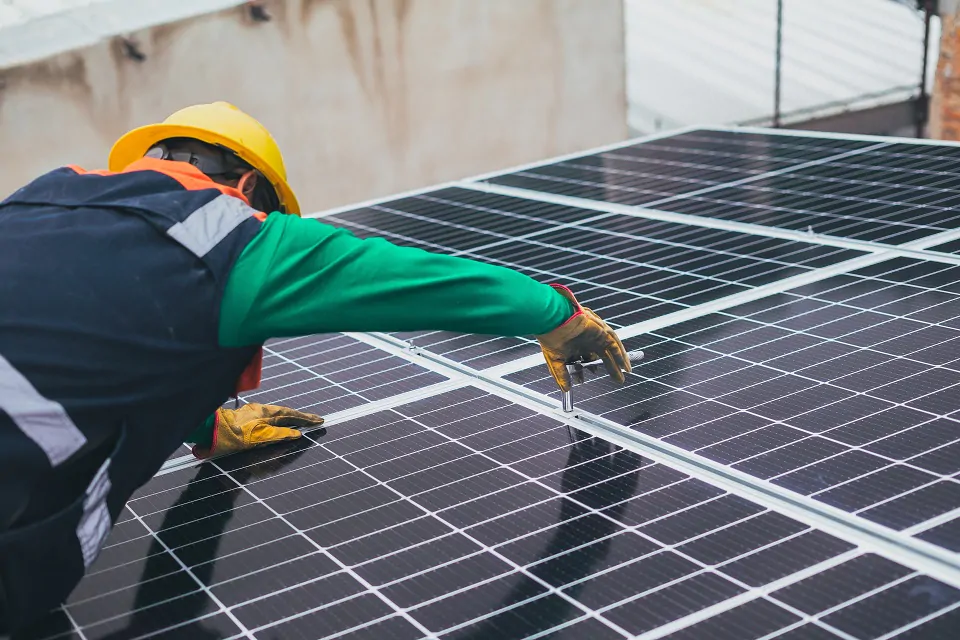How Cost-Efficient Are Solar Panels

Solar panels are popular because they’re the most practical and affordable green energy source. When you install them, you reduce your carbon footprint and contribute to a cleaner environment.
Besides reducing greenhouse emissions, solar panels lower or eliminate monthly electricity bills. As a result, you save a lot of money.
However, the upfront cost for solar installation is so high that it takes years to recoup the investment through savings. So, are solar panels really cost-efficient? Read on to discover.
Understanding Solar Power
If you want to assess the economic feasibility of your solar energy system, you must understand how it works.
The first thing to evaluate is the system cost. Knowing how much each component costs can help you calculate the estimated payback period. Since solar panels require little maintenance, you can do without including them in the calculation.
Once you calculate the cost, focus on the average output of your system. This is the amount of electricity it produces in cloudy and overcast conditions. When calculating output, include the energy losses incurred during transmission (cable resistance) and conversion (inverter).
Using the output from your solar panels, calculate the amount you would otherwise pay if you used mains electricity. These are your savings. For instance, if your system produces 1,000kWh monthly and each unit costs $0.5, you’ll save $500 monthly.
Next, use the average monthly savings to estimate how long it’ll take to recoup your initial investment. Using the example above, a system that produces 1,000kWh monthly produces 33kWh daily and costs around $25,000 to install. Therefore, it would take 50 months or five years to recoup your investment ($25,000/$500).
As seen above, you can recover your money five years after installation. Solar panels last at least 25 years, so you enjoy up to 20 years free, proving the cost-effectiveness of solar energy.
Factors Affecting Solar Panel Cost-effectiveness
Here are the factors affecting solar panel cost-effectiveness.
Location
Your home’s location impacts the efficiency of your solar energy system. If you live in a region that receives sunlight throughout the year, you will get more out of solar panels than people in cold climates. As a result, you are likely to recoup your investment faster. Your home’s location impacts the efficiency of your solar energy system. If you live in a region that receives sunlight throughout the year, you will get more out of solar panels than people in cold climates. As a result, you are likely to recoup your investment faster. To gain accurate information and assess whether your home location is suitable for solar energy installation, you need to get in touch with reputable solar panels Florida installers.
Positioning
Although solar panels can work on any roof, they perform optimally on a south-facing roof with a slope ranging between 15 and 40 degrees. If there are several trees and tall buildings around your property, rooftop installation may not be ideal. Instead, build a structure for mounting the panels such that they receive adequate sunlight.
Solar Panel Type
The two main solar panel types are monocrystalline and polycrystalline. Monocrystalline modules are more efficient and generate more power per square metre, but they are also expensive. On the other hand, polycrystalline panels are affordable but generate less power than monocrystalline units.
How to Maximise Your Solar Energy Investment
Here are some tricks to help increase your solar savings.
Purchase Reputable Products
High-quality products cost more, but they make up for it with dependability. A high-quality unit will likely last 25 years, ensuring you recoup your investment and enjoy complimentary use for decades. Moreover, reputable manufacturers usually offer friendly warranty terms.
Capitalise on Tax Incentives
Many governments offer tax incentives and rebates to people installing solar energy systems. When you adopt solar energy, these authorities exempt you from paying some tax, which increases your savings.
Solar Panel Maintenance
Over time, dirt accumulates on the surface of your solar panels, reducing their efficiency. Cleaning the glass surfaces every six months ensures adequate sunlight reception and optimal power output. Inspecting other system components like batteries and inverters at least once yearly is also advisable.
Final Words
If your region receives adequate sunlight, it takes four to seven years to recoup your investment. Beyond that, you can use your system for free for up to 25 years, after which performance levels drop. So, yes, solar panels are cost-effective and a worthwhile investment.





